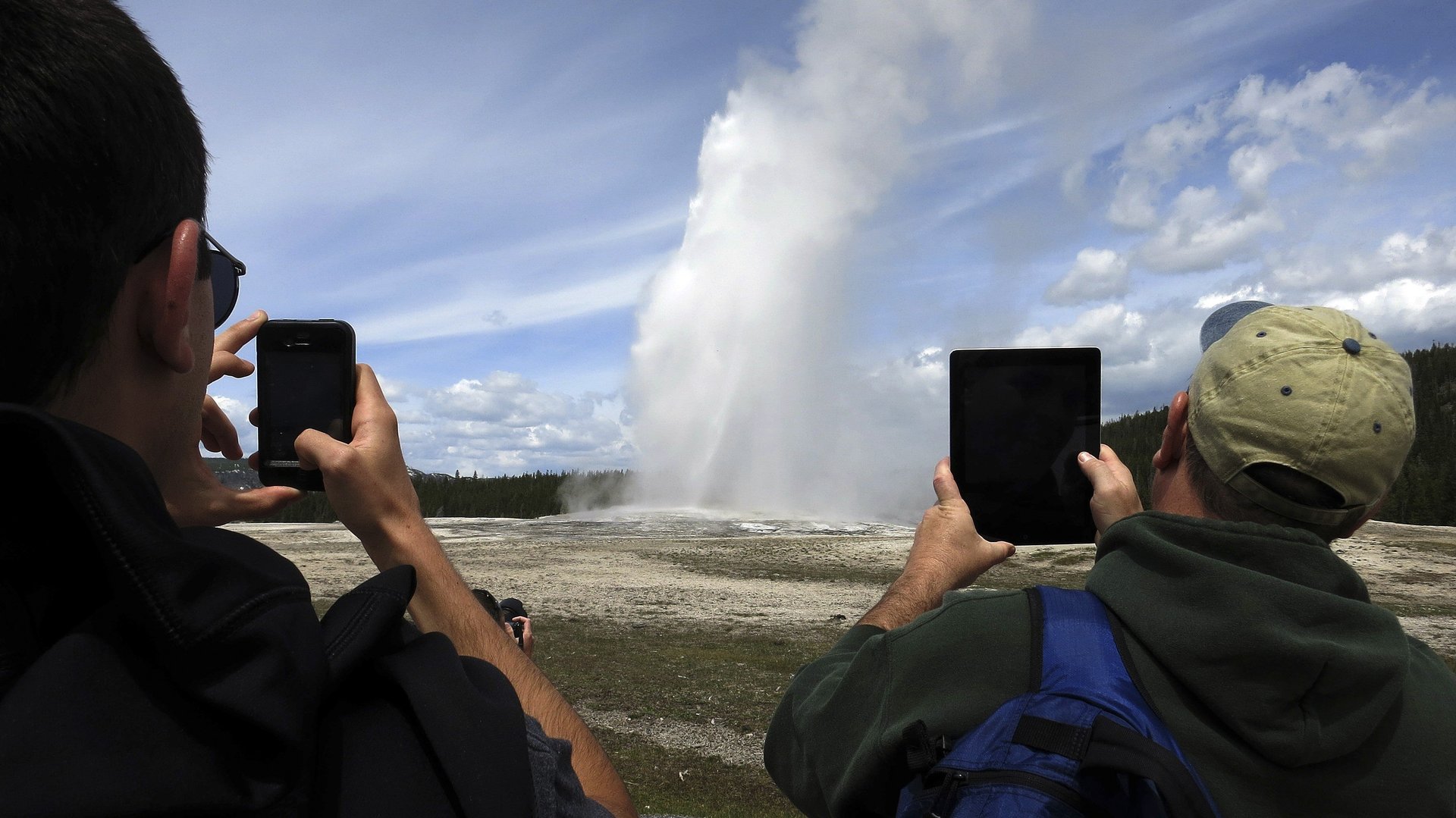Democrats want to ruin America’s national parks with Wi-Fi
What good is being immersed in nature without constant access to high-speed Internet?


What good is being immersed in nature without constant access to high-speed Internet?
You might ask congressional Democrats, who are currently pushing for president Obama to wire up America’s national parks. On Wednesday (Jan. 27), California Rep. Jared Huffman and four others sent a letter to Obama recommending a “significant funding increase” for Internet and wireless access in parks.
“Improved connectivity will help to make our parks accessible and engaging to changing park visitor demographics,” the letter states. (Read: millennials.) “It will also support the Park Service’s long-term goals of improving public safety, providing greater interpretive services, and meeting the needs of the visiting public.”
This isn’t the first effort to digitize America’s national parks, which more than 275 million people visit a year. The Associated Press reported in late 2014 that park officials had begun talking with CenturyLink about bringing wireless service to Yellowstone via a $34 million fiber-optic line. And the National Park Service plans to provide free public Wi-Fi at all park visitor centers by the end of this year, its 100th in operation, according to the letter.
Expanding rural broadband access is also a stated goal of the Obama administration. This past July, Obama announced the creation of “ConnectHome,” a pilot program aimed at bringing high-speed Internet to 275,000 low-income households in 27 cities. According to the Federal Communications Commission, 55 million Americans, or 17% of the population, lacked access to “advanced broadband” in 2015. Obama’s take: “The Internet is not a luxury. It’s a necessity.”
In their letter, the members of Congress argue that bringing wireless service and Wi-Fi to national parks would have the “ancillary benefit of improving connectivity in neighboring communities.”
That’s true, but whether these services are necessary in the parks themselves is much more controversial. While improving Wi-Fi coverage in Yellowstone might increase its popularity among young people, it could also deter visitors looking to unplug. It might also give a boost to the cottage industry of “digital detox,” where places like Camp Grounded already charge adults hundreds of dollars to confiscate their devices for a weekend.
Yes, it’s a grim vision of the future: Wi-Fi enabled campgrounds, and parks teeming with Snapchatting- and Instagramming-millennials. On the bright side, we’ve already sent selfie sticks into the wild. How much worse could it get?